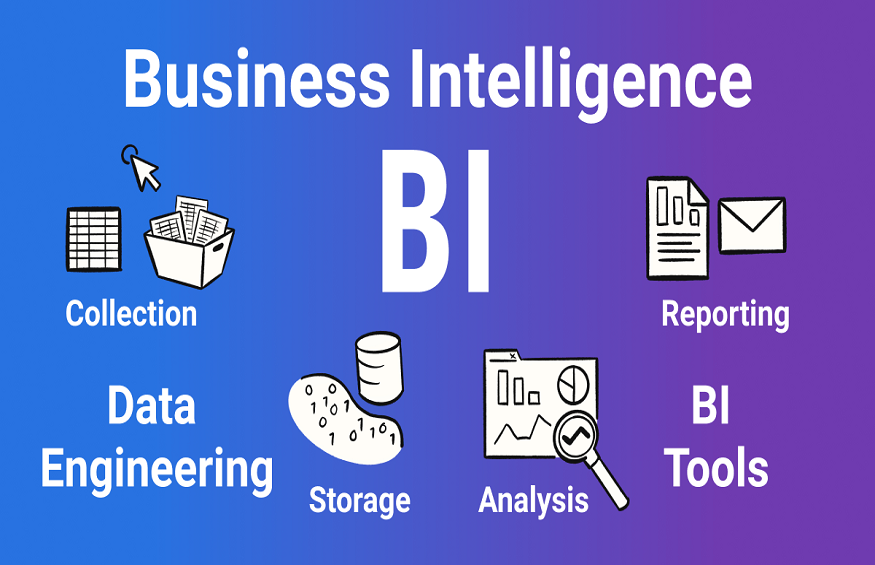What are Business Intelligence Services and How Do They Work?

Business intelligence leverages advanced tools and technologies for transforming data into actionable insights to help an organisation make better decisions. Check out this post to know more about business intelligence and how it works.
Business Intelligence (BI) is one of the fastest-growing disciplines in the world of strategic management. With the rapid advancements in technologies and computing power, we can now compile large amounts of data to uncover insights and trends that could help a business in different ways.
But the integration of this data intelligence into business operations requires advanced systems and expertise of BI service providers. The best of insights are of no use if a business is unable to use them effectively. Thus businesses are increasingly releasing the importance of BI experts.
If you are new to business intelligence, what does BI mean and how these services work is the first step towards its adoption. Here are some of the most important things you should know-
What is Business Intelligence?
In simple words, business intelligence is a combination of data mining, analytics, data tools, data visualisation, and time-proven practices that could work in harmony to help an organisation make better data-driven decisions. From driving change, eliminating inefficiencies, to quickly adapting to market and supply changes, there are many ways in which BI can help a business.
The tools and systems can be used along with internal and external data sources to unearth information related to market trends, competitive intelligence, as well as data like customer pain points, similarities in lost opportunities, key stakeholders, and more.
How Does a Business Intelligence Strategy Works?
Executing a BI strategy abundantly depends on how an organisation uses the data. This advanced handling and utilisation of data is generally not something that can be expected from the IT professionals employed in a company. As a result, most businesses now rely on professional BI services.
Here is a quick overview of how data is managed –
Data Collection
It starts with determining the data sources. The data can be collected internally or externally depending on the end goal of a business. Apart from data collection, the step also involves a thorough examination of the different ways in which the data can be analysed and presented so that it can make sense for the decision-makers.
Data Storage
In this digital world, the amount of data that a business can collect is vast. But it is necessary for this data to be easily accessible. So, once the data sources are finalised, experts then focus on how the collected data will be stored. The storage solution has to be updated regularly, so that businesses can act on the changes as quickly as possible.
Data Analysis
The goal of any BI strategy is to descriptively analyse data in a manner that it can provide detailed answers about the past, present, and future. Many different types of analyses are performed by the BI systems to provide these answers. Data is drawn from the storage for performing these analyses.
Data Reporting
Another critical aspect of business intelligence services is data reporting. In this step, the collected insights are presented to the stakeholders and decision-makers in a comprehensible manner. This ensures that people can use this data and make informed decisions with minimum context.
Make Improved Decisions with Business Intelligence
While business intelligence has been around for some time, it is only in the past few years that such technologies and tools that could work with vast amounts of data have been made available. And with the rising competition and increasing complexity of the business landscape, organisations can no longer risk losing the insights that could be discovered with BI.
With data turning into the most essential resource, it is time for organisations to look for reputable BI services to take advantage of this strategic management discipline to enhance business growth.







